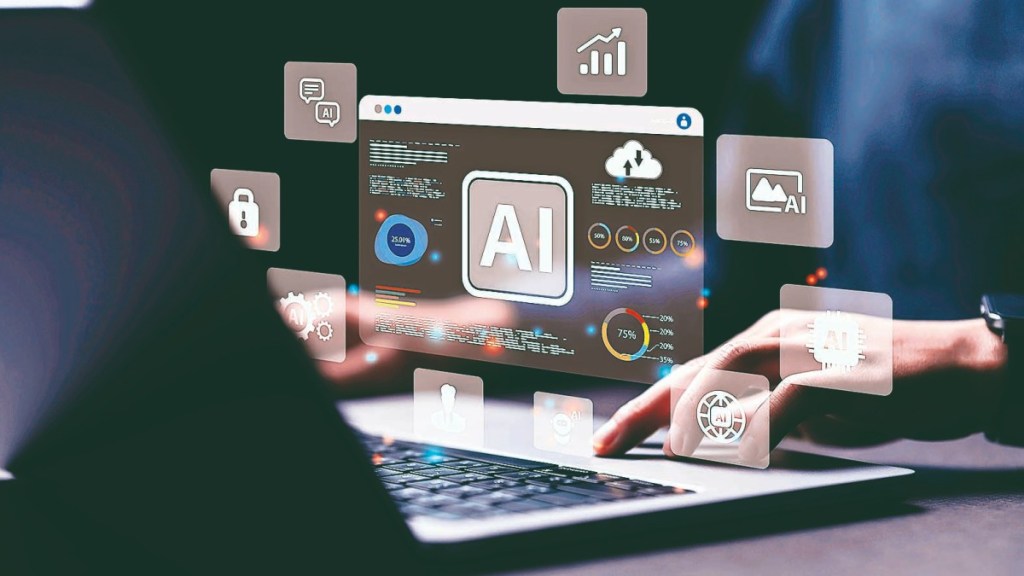If you are outsourcing your thinking ability to artificial intelligence, what will be the impact? Your cognition and critical thinking can get affected, which has been confirmed by a study by researchers from tech giant Microsoft — who is one of the frontrunners in generative AI tools — and Carnegie Mellon University. The study reveals that higher confidence in GenAI’s ability to perform a task is related to less critical thinking effort. They surveyed 319 knowledge workers who use GenAI tools such as
ChatGPT and Copilot at work at least once per week, to understand how they enact critical thinking when using GenAI tools. They also looked at how GenAI affects their perceived effort of thinking critically. The participants were asked to fill out a survey about their generative AI usage which included tools and prompts that they employed, their confidence in the AI tools’ ability to perform certain tasks, and their confidence in assessing the AI’s output.
The tasks that they used AI for included creating images for presentations, generating suggestions for new resources and strategies.
The researchers analysed 936 real-world GenAI tool examples that the participants shared and found that knowledge workers engage in critical thinking primarily to ensure the quality of their work. While they use it for research, they verify outputs against external sources. It showed that GenAI does indeed improve worker efficiency but at a cost. The cost is that it can adversely impact critical engagement with work and can potentially lead to long-term over-reliance on the tool. This, in turn, diminishes skill for independent problem-solving.
Explaining further, the researchers highlighted the shift in the way GenAI tools cause the process of thinking while performing a task. They say, “When using GenAI tools, the effort invested in critical thinking shifts from information gathering to information verification, from problem-solving to AI response integration, and from task execution to task stewardship.” The result is that knowledge workers face new challenges in critical thinking as they incorporate GenAI into their knowledge workflows. “To that end, our work suggests that GenAI tools need to be designed to support knowledge workers’ critical thinking by addressing their awareness, motivation, and ability barriers,” say the researchers.
As has been the case, technology’s impact on human thought has long been scrutinised and debated including writing (objected to by Socrates), printing (objected to by Trithemius), calculators (objected to by teachers of arithmetic), and the internet. “Such consternation is not unfounded. Used improperly, technologies can and do result in the deterioration of cognitive faculties that ought to be preserved,” the researchers note.
Automation is one of the most sought after uses of artificial intelligence. “Professionals are increasingly pursuing AI, machine learning, and GenAI programmes to stay on edge in a world driven by automation and innovation,” says Krishna Kumar, founder and CEO of Simplilearn, an upskilling platform.
Analysts say demand for AI and related skills is experiencing explosive growth, with projections indicating a 400% increase in the next three years, reflecting the shift in industry focus towards automation, data-driven decision-making, and advanced analytics.
AR Ramesh, CEO, TeamLease Degree Apprenticeship, points out that in 2023 alone, these skills saw a 67% growth rate, demonstrating the rapid acceleration of this field.
He says in India, currently, there are about 6 lakh individuals in India equipped with AI skills. That’s good news indeed as far as being abreast with changing technology and staying ahead is concerned.
It is understood that automation of routine tasks can free the workers to take up more complex tasks.
“The companies can easily enable automation of these routine tasks, such as documentation, and customer service, which can in turn allow the workers to focus on more complex work,” explains AI and tech policy analyst Radhika Roy.
However, ironically enough, it was found that automation of tasks per se, devoids people of the opportunity to do mental exercise and strengthen cognitive skills.
They say, “Irony of automation is that by mechanising routine tasks and leaving exception-handling to the human user, you deprive the user of the routine opportunities to practice their judgment and strengthen their cognitive musculature, leaving them atrophied and unprepared when the exceptions do arise.”
The study also commented on confidence’s relation to the usage of GenAI vis a vis critical thinking. It said, “Higher confidence in GenAI is associated with less critical thinking, while higher self-confidence is associated with more critical thinking.”
It was found that GenAI tools appear to reduce the perceived effort required for critical thinking tasks among knowledge workers, especially when they have higher confidence in AI capabilities. However, workers who are confident in their own skills tend to perceive greater effort in these tasks, particularly when evaluating and applying AI responses.
Hence, it was seen that as workers shift from task execution to AI oversight, they trade hands-on engagement for the challenge of verifying and editing AI outputs, revealing both the efficiency gains and the risks of diminished critical reflection.
